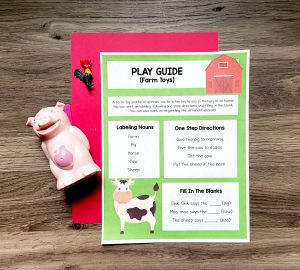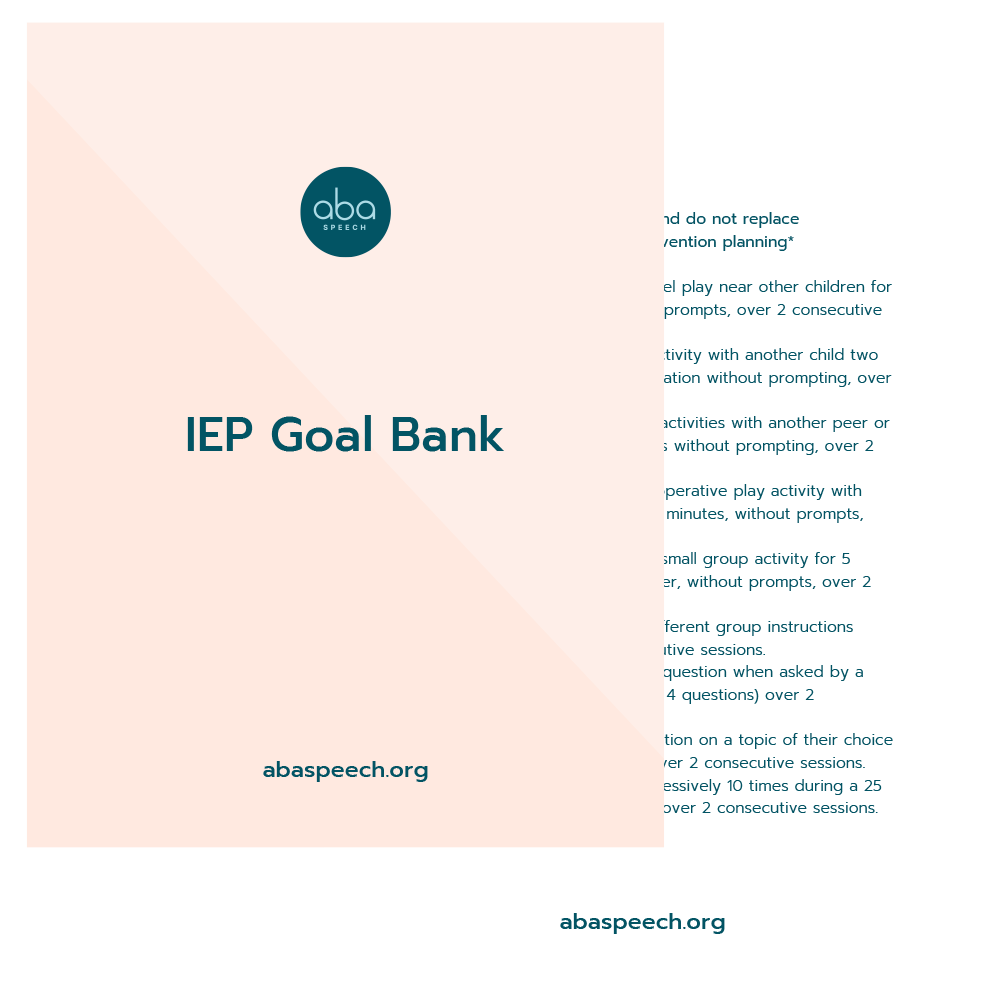
“Oink,” “Moo,” “Baa,” “Cocka doodle doo!” Using farm toys in play therapy for children with Autism is a great way to work on a variety of skills. A farm toy and farm animals can be fun to use in therapy or at home! Play-based therapy allows parents and professionals to plan activities, based on fun and motivating toys which makes therapy and play sessions highly motivating, effective and fun. To help with this, ABA Speech is excited to offer a fun and engaging play companion!
Why a Play-Based Approach Is Important
“Play provides opportunities for elaborating existing scripts through enacting a wider set of roles and possibilities than are present in ‘reality.’ (Paul, 2001). It is not only important for children to play at home, but it can also be highly effective in therapy, particularly with students with Autism. Play therapy can be helpful with improving attention and establishing positive rapport. Play is also a great way to engage in shared activities, allowing opportunities for the child to build vocabulary and social skills. Through play, not only can the child gain basic conversational skills such as eye contact and turn-taking skills, he/she can also have access to building vocabulary and a variety of language skills. Through teaching the child scripts to utilize during play, this can help with building overall vocabulary and language skills and ultimately carryover into other environments with real-life events.
How To Use Play in Therapy
Many types of play can be utilized and targeted during shared activities. Functional play explores how basic objects work and how they are used. Construction play focuses on building/constructing using various objects. Game play utilizes pre-planned games, such as board games, with clear sets of rules. Movement/outdoor play involves physical activity. Pretend play, also known as symbolic play, focuses on basic activities done in real-life or imaginative events but in play form. When engaging in play therapy through shared activities, it can be highly beneficial for the child to take the lead during the activity as much as possible, without moving away from the targeted goals, so the session feels natural and fun!
How to Use Toys in Shared Activities
Farm toys and farm animals are great materials to use in play therapy as families and therapists already own or have easy access to these. Using farm toys and animals in play therapy offers a platform to utilize many scripts, providing excellent opportunities to work on a variety of skills such as joint attention (shared activities); requesting (i.e. “I want the pig;” “Give me the cow;” etc.); labeling nouns (i.e. “farm,” “pig,” “horse,” “cow,” “sheep,” etc.); and following one-step directions (ie. “Give the pig to Mommy;” “Get the cow; “Put the sheep in the barn.”). Utilizing farm toys and animals during play therapy also allows numerous opportunities to target filling in the blanks, while engaging in a shared activity with the child. Some examples of these types of opportunities include the following: “Oink, says the _____ (pig);” “Moo moo says the ____ (cow); and “The sheep says ____ (baa).” Toys may be adapted to address multiple goals, making therapy flexible and fun! Although I’ve described a few goals which may be targeted using play therapy, the opportunities are endless!
Get Your Farm Play Guide Freebie
To help with integrating play into your therapy sessions or time engaging with your child at home, ABA Speech is excited to offer a fun and engaging play companion! Be sure to scroll down to the bottom, and input your e-mail to get your free farm toy play guide!
Paul, Rhea (2001). Language Disorders from Infancy through Adolescense. 2nd Ed., St Louis, MO. Elsevier.

I would love the farm toy play guide! Do you sell a set of them anywhere? I did not see where to put my email address in to receive my free copy. Thanks!
I have sent it along. We are not selling these but we will have more free ones coming soon. Make sure to register for my new free webinar! https://abaspeech.org/webinar-autism-strategies/